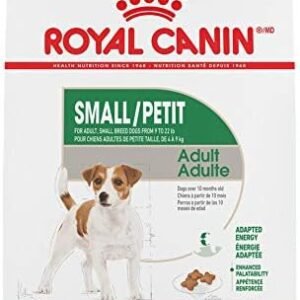Welcome to the comprehensive guide on Meclizine for Dogs. In this article, we’ll explore the importance of Meclizine in canine healthcare, providing detailed insights into its benefits, proper dosage, potential side effects, and more. Whether you’re a veterinarian seeking vital information or a concerned pet owner looking to enhance your understanding of this medication, we’ve got you covered.

Table of Contents
Table: Essential Drug Information for Meclizine in Veterinary Use
| Common Names | Meclizine |
|---|---|
| Drug Type | Antihistamine |
| Used For | Motion Sickness, Vestibular Disease |
| Administered | Tablets |
| FDA Approved | Yes |
As seen in the table, Meclizine is commonly known by its generic name and is classified as an antihistamine. It serves various purposes in canine healthcare, primarily addressing issues related to motion sickness and vestibular disease. The medication is typically administered in tablet form and is FDA approved for veterinary use.
II. Understanding Meclizine
What is Meclizine?
Meclizine is an antihistamine medication that has gained recognition for its effectiveness in alleviating various conditions in both humans and dogs. It belongs to a class of drugs known as H1 receptor antagonists, which primarily work by blocking the effects of histamine, a natural substance produced by the body. While Meclizine is most commonly associated with its use in humans to manage motion sickness and vertigo, it has found its place in veterinary medicine as well.
How Does Meclizine Work in Dogs’ Bodies?
The mechanism of action of Meclizine in dogs is relatively straightforward. It acts by blocking the H1 histamine receptors in the central nervous system. By doing so, it inhibits the transmission of signals related to nausea and dizziness. This is particularly useful in scenarios where a dog may be experiencing motion sickness or vestibular issues, which can lead to symptoms like nausea, vomiting, and a lack of balance.
Common Conditions and Ailments in Dogs That Meclizine Can Treat or Manage
Meclizine is primarily used in dogs to address specific conditions and ailments, including:
1. Motion Sickness
Just like humans, some dogs are prone to motion sickness, especially during car rides. Symptoms of motion sickness can include excessive drooling, vomiting, restlessness, and anxiety. Meclizine can help alleviate these symptoms, making travel a more comfortable experience for your canine companion.
2. Vestibular Disease
Vestibular disease in dogs affects the balance and coordination of a dog and can lead to severe disorientation and stumbling. Meclizine can be beneficial in managing the symptoms associated with vestibular disease, offering your dog relief from dizziness and helping them regain their stability.
3. Generalized Nausea
In some cases, dogs may experience generalized nausea that is not directly related to motion sickness or vestibular disease. Meclizine’s anti-nausea properties can provide comfort to dogs feeling unwell due to various causes.
4. Anxiety-Induced Nausea
Dogs that experience anxiety or stress may exhibit symptoms of nausea, which can further exacerbate their anxiety. Meclizine can help address both the nausea and the underlying anxiety, promoting a sense of calm.
It’s important to note that while Meclizine can be effective in managing these conditions, it should only be administered under the guidance of a veterinarian. The correct dosage and duration of treatment will depend on the specific needs of your dog and the underlying cause of their symptoms.
Understanding how Meclizine works and its applications in canine healthcare is essential for making informed decisions about your dog’s well-being. In the following section, we will delve into the specific benefits of using Meclizine in dogs, shedding light on how it can enhance their quality of life.
III. Benefits of Meclizine for Dogs
Effectiveness in Treating Specific Canine Health Issues
Meclizine is a versatile medication known for its efficacy in addressing various health issues in dogs. Here are some of the specific conditions and situations where Meclizine can be a valuable treatment option:
1. Motion Sickness Relief
One of the most common applications of Meclizine in dogs is providing relief from motion sickness. Dogs that become anxious or nauseous during car rides or other forms of transportation can benefit greatly from Meclizine. By alleviating the symptoms of motion sickness, this medication allows dogs to travel more comfortably and stress-free.
2. Management of Vestibular Disease Symptoms
Vestibular disease can be a challenging condition for dogs, leading to disorientation, loss of balance, and severe nausea. Meclizine’s ability to reduce dizziness and nausea makes it a valuable component of the treatment plan for dogs suffering from vestibular disease. It can improve their quality of life by enhancing their stability and comfort.
3. Reduction of Generalized Nausea
Dogs can experience nausea for various reasons, including underlying health issues, dietary problems, or medication side effects. Meclizine’s anti-nausea properties make it an effective solution for reducing generalized nausea in dogs, providing relief and promoting a sense of well-being.
4. Anxiety Management
Anxiety-induced nausea is a common problem in dogs, especially during stressful situations such as thunderstorms, fireworks, or separation anxiety. Meclizine not only addresses nausea but also helps manage the underlying anxiety, contributing to a calmer and more relaxed state for the dog.
How Meclizine Can Improve Dogs’ Quality of Life
Meclizine offers several ways to enhance the quality of life for dogs and their owners:
1. Stress-Free Travel
For dogs prone to motion sickness, Meclizine can transform travel from a distressing experience into a stress-free adventure. Whether you’re planning a road trip or need to visit the veterinarian, Meclizine can make the journey more enjoyable for your furry companion.
2. Improved Balance and Coordination
In cases of vestibular disease, Meclizine can significantly improve a dog’s balance and coordination. This means they can move more comfortably and confidently, making daily activities like walking and eating far less challenging.
3. Reduced Anxiety
Dogs experiencing anxiety-induced nausea can benefit from Meclizine’s dual action. By addressing both nausea and anxiety, it helps create a more tranquil environment for your dog. This contributes to an overall better quality of life, as your pet feels more relaxed and at ease.
4. Enhanced Appetite
Nausea can significantly impact a dog’s appetite, potentially leading to weight loss and nutritional deficiencies. Meclizine’s ability to reduce nausea ensures that dogs are more willing to eat, maintaining a healthy weight and getting the necessary nutrients for their well-being.
It’s essential to remember that while Meclizine can offer these benefits, it should always be administered under the guidance of a veterinarian. Proper dosing and treatment duration will depend on your dog’s specific needs and the underlying causes of their symptoms.
IV. Administering Meclizine to Dogs

Dosage Guidelines: Determining the Right Dosage
The correct Meclizine dosage for your dog depends on various factors, including their size, the specific condition being treated, and your veterinarian’s recommendations. Always consult with your vet to determine the appropriate dosage. Meclizine typically comes in tablet form, and the dosage is measured in milligrams (mg).
Here are some general dosage guidelines:
- For Motion Sickness: The typical dosage for motion sickness is 12.5 to 50 mg, administered about 1-2 hours before travel. The exact amount should be based on your dog’s size, with smaller dogs receiving the lower end of the range.
- For Vestibular Disease: The dosage for vestibular disease management may vary, but a common starting point is 12.5 mg administered 2-3 times a day. However, this can vary based on your dog’s specific symptoms and needs.
Always follow your vet’s recommendations for your dog’s unique situation, as they may need to make adjustments to the dosage based on factors such as age, weight, and the severity of the condition.
Meclizine dosage chart for dogs
Here’s a general dosage chart for Meclizine for dogs, based on weight and age. Always consult with your veterinarian for the most accurate dosage for your dog’s specific condition.
| Age (Years) | Weight (lbs) | Dosage (mg) | Frequency |
|---|---|---|---|
| Puppy | < 10 | 6.25 – 12.5 | Every 24 hours |
| Adult | 10 – 25 | 12.5 – 25 | Every 24 hours |
| Adult | 25 – 50 | 25 – 50 | Every 24 hours |
| Senior | > 50 | 50 | Every 24 hours |
Meclizine is typically administered in tablet form and can be given with or without food. Always follow your veterinarian’s guidance to ensure the safety and well-being of your dog.
Frequency of Administration
The frequency of Meclizine administration depends on the purpose of treatment:
- For Motion Sickness: Meclizine is typically administered about 1-2 hours before travel. In cases of extended travel, you may administer an additional dose after 24 hours.
- For Vestibular Disease: The frequency may vary based on your veterinarian’s recommendation. It is essential to follow their guidance precisely.
Directions for Use
Administering Meclizine to your dog can be a straightforward process, but here are some tips to ensure a smooth experience:
- Follow Veterinarian’s Instructions: Always adhere to the dosage and administration instructions provided by your veterinarian.
- Administer with Food: Meclizine can be administered with or without food. However, giving it with a small meal can help reduce the chances of stomach upset.
- Hide in Treats: If your dog is resistant to taking tablets, you can try hiding the Meclizine tablet inside a treat or a soft, easily concealable food item. Ensure that your dog swallows the entire tablet.
- Crush or Split: If your dog struggles with swallowing tablets, consult your vet to see if Meclizine can be crushed or split. This may make it easier to administer.
- Monitor for Side Effects: After giving Meclizine, observe your dog for any adverse reactions. If you notice any severe or unusual side effects, contact your veterinarian immediately.
Importance of Adhering to Prescribed Dosages
Adhering to the prescribed dosages is crucial to ensure your dog’s safety and the effectiveness of the treatment. Giving too much Meclizine can lead to side effects, while giving too little may not provide the desired relief. Always follow your veterinarian’s recommendations carefully and avoid altering the dosage without their guidance.
Missed Dose Guideline
If you accidentally miss a dose of Meclizine, follow these guidelines:
- Take the Missed Dose: If you remember shortly after the missed dose, give it to your dog as soon as possible.
- Skip If It’s Time for the Next Dose: If it’s close to the time for the next scheduled dose, skip the missed one and continue with the regular dosing schedule.
- Do Not Double Dose: Never administer a double dose to make up for a missed one, as this can lead to an overdose.
Remember that Meclizine should always be administered under the guidance of a veterinarian who can provide specific instructions tailored to your dog’s needs.
V. Potential Side Effects and Precautions
When using Meclizine for dogs, it’s essential to be aware of potential side effects and take necessary precautions to ensure your pet’s safety and well-being. In this section, we’ll discuss common side effects, how to identify severe or adverse reactions, precautions for pregnant or lactating dogs, and interactions with other medications or supplements.
Common Side Effects of Meclizine in Dogs
Meclizine is generally well-tolerated by dogs, but like any medication, it can cause some side effects. Common side effects of Meclizine in dogs may include:
- Drowsiness: Meclizine can cause drowsiness, making your dog appear lethargic or less active than usual.
- Dry Mouth: Your dog may experience dry mouth, which could manifest as increased thirst or excessive panting.
- Stomach Upset: Meclizine may lead to mild stomach upset, such as vomiting or diarrhea.
- Changes in Behavior: Some dogs may exhibit changes in behavior, such as being more subdued or unusually restless.
- Incoordination: Meclizine can affect a dog’s balance and coordination temporarily.
- Allergic Reactions: While rare, some dogs may experience allergic reactions, such as hives, facial swelling, or difficulty breathing. If you notice any signs of an allergic reaction, seek immediate veterinary care.
It’s important to remember that not all dogs will experience these side effects, and they are often mild and temporary. However, if your dog exhibits severe or persistent side effects, contact your veterinarian for guidance.
Identifying Severe or Adverse Reactions
While Meclizine is considered safe, it’s crucial to recognize the signs of severe or adverse reactions, which may be rare but require immediate attention. These reactions can include:
- Allergic Reactions: As mentioned earlier, signs of an allergic reaction may include hives, facial swelling, or difficulty breathing. If you suspect an allergic reaction, seek emergency veterinary care.
- Extreme Lethargy: If your dog becomes excessively lethargic or weak, it could indicate a severe reaction to the medication.
- Vomiting or Diarrhea: While mild stomach upset is common, persistent or severe vomiting and diarrhea may be concerning.
- Difficulty Breathing: Labored or rapid breathing, especially if accompanied by other symptoms, should be addressed promptly.
- Loss of Consciousness: If your dog loses consciousness or appears unresponsive, this is a severe reaction that requires immediate veterinary care.
Precautions for Pregnant or Lactating Dogs
If your dog is pregnant or lactating, special precautions should be taken when considering Meclizine. While Meclizine is generally considered safe, there is limited research on its use in pregnant or nursing dogs. It’s advisable to consult with your veterinarian to assess the potential risks and benefits.
In some cases, your vet may recommend alternative treatments or adjust the dosage to ensure the safety of both the mother and her puppies.
Interactions with Other Medications or Supplements
Meclizine may interact with other medications or supplements your dog is taking. It’s crucial to inform your veterinarian about all the medications, supplements, or treatments your dog is receiving to prevent potential interactions.
Common interactions may occur with medications like:
- Sedatives: Meclizine may enhance the sedative effects of other medications, potentially causing excessive drowsiness.
- Antihistamines: Combining Meclizine with other antihistamines can result in increased drowsiness and other side effects.
- Central Nervous System Depressants: Meclizine may interact with other medications that depress the central nervous system, leading to additive effects.
Your veterinarian will consider these potential interactions and adjust the treatment plan as needed to ensure your dog’s safety and well-being.
VI. Consultation with a Veterinarian
Emphasizing the Importance of Professional Guidance
Before starting any treatment involving medications, it’s essential to emphasize the significance of consulting a veterinarian. Veterinarians are highly trained professionals with the expertise to assess your dog’s health, prescribe appropriate treatments, and monitor their progress. When it comes to Meclizine or any other medication, a veterinarian’s guidance is invaluable.
Key reasons to consult with a veterinarian include:
- Accurate Diagnosis: Veterinarians can accurately diagnose your dog’s condition, ensuring that Meclizine is the most appropriate treatment.
- Tailored Treatment Plans: Veterinarians can customize treatment plans to meet your dog’s unique needs, including determining the right dosage and duration.
- Monitoring for Side Effects: Veterinarians can monitor your dog for side effects and make adjustments if necessary.
- Preventing Drug Interactions: They can assess potential drug interactions, ensuring your dog’s safety if they are taking other medications.
Overdose Information and Possible Toxicity/Effects
While Meclizine is generally safe for dogs when administered correctly, it’s essential to be aware of the risk of overdose and potential toxicity. Overdosing on Meclizine can lead to severe health issues, and recognizing the signs is crucial.
Symptoms of Meclizine overdose may include:
- Excessive drowsiness: Your dog may appear extremely lethargic or unresponsive.
- Loss of coordination: Overdose can worsen incoordination and balance issues.
- Vomiting: Excessive vomiting can occur in cases of overdose.
- Diarrhea: Severe diarrhea may develop.
- Breathing difficulties: Overdose can lead to difficulty breathing or rapid breathing.
If you suspect that your dog has ingested too much Meclizine, contact your veterinarian or an emergency pet care center immediately. Time is of the essence when dealing with an overdose.
Signs or Symptoms: When to Call the Vet
Certain signs and symptoms in your dog may indicate a need for immediate veterinary attention. While Meclizine is usually well-tolerated, any unusual or severe reactions should prompt you to contact your veterinarian. Signs that warrant a call to the vet include:
- Allergic Reactions: If your dog exhibits signs of an allergic reaction, such as hives, facial swelling, or difficulty breathing, seek immediate veterinary care.
- Severe Side Effects: If your dog experiences severe side effects like excessive drowsiness, incoordination, or persistent vomiting, contact your vet.
- Difficulty Breathing: Labored or rapid breathing, especially if accompanied by other symptoms, should be addressed promptly.
- Loss of Consciousness: If your dog loses consciousness or appears unresponsive, this is a severe reaction that requires immediate veterinary care.
How to Discuss Meclizine with Your Veterinarian
When discussing Meclizine with your veterinarian, it’s important to provide as much information as possible to ensure the best care for your dog. Here’s how to approach the discussion:
- Share Your Dog’s Medical History: Provide your vet with your dog’s complete medical history, including any pre-existing conditions, allergies, or medications they are currently taking.
- Describe the Symptoms: Clearly describe the symptoms or issues that prompted you to consider Meclizine for your dog.
- Medication History: If your dog has been taking Meclizine or other medications, inform your veterinarian.
- Ask Questions: Don’t hesitate to ask your vet any questions or express any concerns you may have about using Meclizine.
- Follow Recommendations: Once your veterinarian provides guidance or a treatment plan, follow their recommendations precisely to ensure the best possible outcome.
Seeking a Second Opinion
In some cases, seeking a second opinion may be beneficial. If you have reservations or concerns about the prescribed treatment, it’s perfectly acceptable to consult with another veterinarian. A second opinion can provide you with peace of mind and may offer alternative treatment options or confirm the initial diagnosis and treatment plan.
Always prioritize your dog’s well-being and work closely with your veterinarian to ensure they receive the best care possible. In the next section, we will compare Meclizine with similar drugs in this category, providing insights into its efficacy, alternative options, and cost considerations.
VII. Comparison with Similar Drugs in this Category
Comparing the Efficacy of Drugs
When comparing Meclizine to other drugs in its category, it’s crucial to consider their effectiveness in addressing specific canine health issues. Meclizine is primarily used for its antiemetic (anti-nausea) and antivertigo (anti-dizziness) properties. While it can be effective for motion sickness and certain vestibular disorders, there are other medications that may also be considered based on the condition being treated.
Diphenhydramine: This antihistamine is known for its sedative effects and is often used for allergies and motion sickness. It may not be as effective for certain vestibular disorders.
Dimenhydrinate: Similar to diphenhydramine, dimenhydrinate is used for motion sickness and nausea. It can be used as an alternative to Meclizine in some cases.
Promethazine: This antihistamine has antiemetic properties and can be used for nausea and vomiting. It may be an alternative to Meclizine for certain conditions.
The choice of medication depends on the specific health issue your dog is facing. Meclizine is most commonly chosen when dealing with vestibular disorders or motion sickness. However, your veterinarian will consider your dog’s overall health, symptoms, and medical history to determine the most suitable medication.
Which Alternative is Chosen When?
The choice between Meclizine and alternative medications depends on the diagnosis and the veterinarian’s recommendations. Here are scenarios in which an alternative might be chosen:
- Allergies: For dogs with allergies, antihistamines like diphenhydramine or dimenhydrinate may be preferred.
- Motion Sickness: If your dog experiences motion sickness during car rides or travel, Meclizine, diphenhydramine, or dimenhydrinate could be chosen.
- Vestibular Disorders: Meclizine is often the first choice for vestibular disorders, but other antivertigo medications may be considered.
- Nausea and Vomiting: Promethazine may be an alternative for managing nausea and vomiting.
It’s important to note that the choice of medication is based on the specific needs of your dog and the veterinarian’s expertise.
Comparing the Cost of the Drug
Cost considerations are a significant factor in the choice of medication. The price of Meclizine and its alternatives can vary depending on factors such as brand, formulation, and location. Generally, over-the-counter versions of these drugs may be more affordable than prescription medications. However, prescription medications may be required for certain conditions, and their cost can vary widely.
It’s advisable to discuss cost considerations with your veterinarian. They can provide information on the most cost-effective options while ensuring that your dog receives the appropriate treatment.
VIII. Frequently Asked Questions (FAQs)
1. What is Meclizine, and how does it work for dogs?
Meclizine is an antihistamine medication that is commonly used in dogs to treat conditions related to motion sickness and vestibular disorders. It works by blocking certain signals in the brain responsible for triggering nausea and dizziness. This can help alleviate symptoms such as vomiting, vertigo, and motion-related discomfort.
2. When should I consider using Meclizine for my dog?
Meclizine is typically considered when your dog experiences motion sickness, particularly during car rides or travel. It’s also used in cases of vestibular disorders, which can cause severe dizziness and loss of balance. Your veterinarian will recommend Meclizine if they believe it’s the appropriate treatment for your dog’s specific condition.
3. Is Meclizine safe for my dog, and does it have any side effects?
Meclizine is generally considered safe when administered under the guidance of a veterinarian. However, like any medication, it can have potential side effects. Common side effects may include drowsiness, dry mouth, or, in some cases, mild gastrointestinal upset. Serious adverse reactions are rare but can include rapid breathing, irregular heartbeat, or seizures. It’s crucial to follow the prescribed dosage and consult your veterinarian if you notice any unusual symptoms.
4. How should I administer Meclizine to my dog?
Meclizine is available in various forms, including tablets and oral liquid. The administration method depends on the form of the medication. It’s often recommended to hide tablets in a treat or disguise them in your dog’s food. The oral liquid can be administered using a dropper or by mixing it with a small amount of food. Always follow your veterinarian’s instructions for the correct dosage and administration method.
5. Can I use Meclizine for long-term treatment in my dog?
Meclizine is typically prescribed for short-term use, such as during specific travel situations or when managing acute symptoms of vestibular disorders. Prolonged use of Meclizine should be discussed with your veterinarian, as they can assess the potential risks and benefits of long-term treatment. Long-term use may not be suitable for all dogs, and alternative treatment options might be considered.
6. Can pregnant or lactating dogs use Meclizine?
The safety of Meclizine in pregnant or lactating dogs has not been extensively studied. Therefore, its use in these situations should be discussed with your veterinarian. They can evaluate the potential risks and benefits and recommend the most appropriate treatment for your dog while considering their specific condition and stage of pregnancy or lactation.
7. Can Meclizine interact with other medications my dog is taking?
Meclizine can interact with certain medications, so it’s crucial to inform your veterinarian about any other medications or supplements your dog is currently taking. Interactions may occur with central nervous system depressants, anticholinergic drugs, and medications that cause drowsiness. Your veterinarian will carefully consider these factors when prescribing Meclizine for your dog to avoid potential complications.
8. When should I contact my veterinarian regarding Meclizine?
You should contact your veterinarian if you notice any unusual or severe side effects in your dog, such as rapid or irregular breathing, seizures, or signs of an allergic reaction. Additionally, if you have questions or concerns about your dog’s response to Meclizine, including its effectiveness or any changes in their condition, it’s advisable to seek your veterinarian’s guidance.
9. Can I purchase Meclizine over the counter for my dog?
Meclizine is available both as a prescription and an over-the-counter (OTC) medication. While some pet owners may opt for OTC Meclizine, it’s important to consult with your veterinarian before using any medication, even if it is available without a prescription. Your vet can provide guidance on the appropriate dosage and ensure it’s the right choice for your dog’s specific needs.
10. Is Meclizine effective for all dogs with motion sickness?
Meclizine is generally effective for many dogs with motion sickness, but individual responses may vary. It’s important to follow your veterinarian’s recommendations regarding dosage and administration. In some cases, alternative medications or treatments may be considered if Meclizine doesn’t provide the desired relief.
11. Can dogs take meclizine for car sickness?
Yes, meclizine can be used to treat car sickness in dogs
12. Can dogs take meclizine for nausea?
Yes, meclizine can help manage nausea in dogs, including nausea unrelated to motion sickness.
13. Can dogs take meclizine for vertigo?
Yes, meclizine is used to treat vertigo and vestibular disease in dogs.

Dr. Rachel Davis is a passionate veterinarian, having completed her studies in veterinary medicine at the University of California. Alongside her professional commitments, she remains dedicated to her beloved dog and has a profound love for all animals. In her spare time, she indulges in her passion for writing, often focusing on topics related to veterinary care and animal welfare.



















